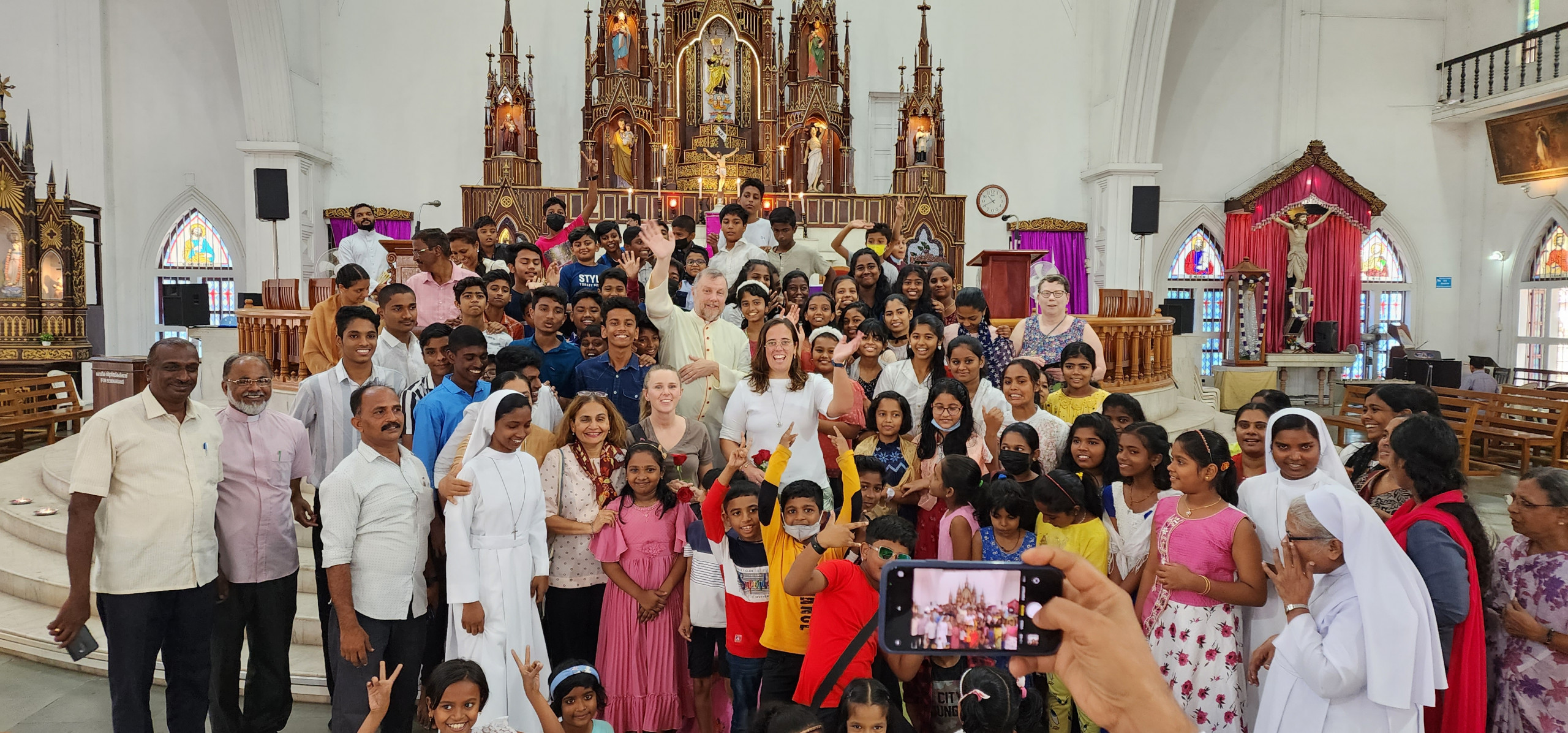
Located in the Indian diocese of Tiruchirappalli (Trichy), about 2,000 miles south of Mumbai, the St. Francis Xavier School for Boys teaches young men eight different trades guaranteed to give them a future as carpenters, mechanics, welders, book binders, machinists, or electricians.
Missionary Childhood Association
There are 80 teens from all over the region living in the school, and 110 other students from the city of Trichy, all of them eager to learn. Students here are aware that the skills they are learning will allow them to make at least 1,000 rupees a day ($9), significantly more than what most of their parents make today.
Founded in 1906 by the Salesians, the first missionaries to reach this region of India, the school today is run by the diocese, and receives support from The Pontifical Mission Societies USA. This help is particularly channeled through the Missionary Childhood Association, which, through programs such as the Mite Boxes, helps bring school-aged children in the United States closer to the realities of children in other parts of the world.
St. Francis Xavier School for Boys.
190 students.
Eight trades.
1,108 hospital beds built by March 2023.
Faith that can move mountains
According to Father John Peter, the principal of the training center, “the people here are economically very poor, but they have a faith that can move mountains.”
Most of the student’s parents are agricultural day laborers, which means they work approximately 100 days per year, with a guaranteed yearly income of $400 that comes from the government. With this, their families subsist on barely $1 per day. As carpenters, they would make twice as much, and they could work every day of the year.
St. Francis Xavier School
The St. Francis Xavier School is run by Catholic priests and a dozen teachers, many of whom are engineers. The process is very hands-on for the students, who will have gained hundreds of hours of experience in the trade(s) they choose by the time they graduate from the three-year program.
Many of the students grew up seeing the works of the alumni: The welding class has fulfilled orders from both local parishes and the local hospital (they make the beds used by most health centers in the area, with over 1,000 units already in use); the carpentry students have made the desks and chairs used in the schools; the parish bulletins of the entire diocese are printed by the students in this school at the Don Bosco print house.
Opportunities
“Those who are blessed enough to be able to attend this school understand that it is, in fact, a blessing, an opportunity many children aspire to,” said Milton Maxwell, an alumnus who now teaches welding. “Unfortunately, we have more applicants than places. We are hoping to add space in the dormitories, but the funds are scarce.”
The priests, and even a handful of seminarians, give lessons on both faith and morality, putting special attention to promoting the God-given human dignity we all have. Besides fostering children’s personal faith, this helps break the cycle of violence against girls in a country where child marriage of girls is banned by law but not by culture.
The city of Trichy is credited with being the best livable city and the cleanest city of Tamil Nadu, as well as the fifth safest city for women in India. Nevertheless, throughout this region, most Christians are converts from Hinduism and Dalits, formerly known as the untouchables in India’s caste system. The government has set up a series of affirmative actions to help the Dalits, but these possibilities are taken away the moment they embrace Christ.
Evangelization
Evangelization is “very difficult,” said Father John. The government continues to increase the regulations for new parishes, and the diocese risks losing the schools if new parishes are built without meeting often arbitrary regulations.
“But where a door closes, the Lord always helps us open a window,” he said.
“People here are very poor, especially Catholics,” said Father John Peter. “They work the land, but they don’t own it, and the dread of eviction is constant. But we are trying to give the younger generations a better education so that they can have a future that is better than their past.”



